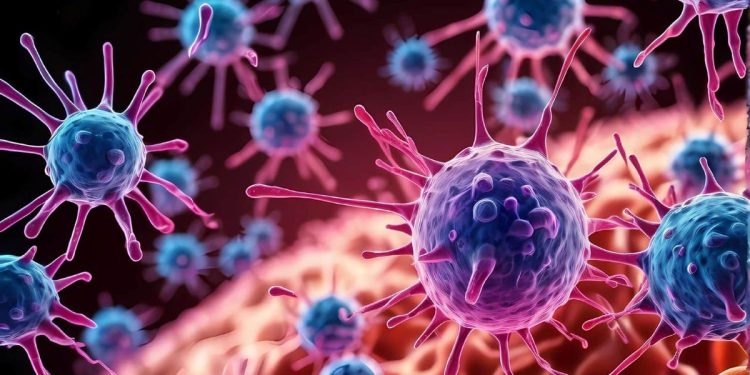Jakarta, Indonesia Sentinel — A team of scientists has developed a groundbreaking technology that can revert cancer cells to normal cells without killing them. The technology offering a new approach to cancer treatment while avoiding side effects and resistance risks commonly associated with traditional therapies.
Cancer cell reversion, which restores malignant cells to a differentiated non-cancerous state, has been proposed as a promising therapeutic approach in recent years. Through an induction process, researchers can potentially restore normal cell functions or even trigger ‘trans-differentiation,’ where cancer cells transform into entirely different specialized cell types. For instance, breast cancer cells could be converted into liver cells.
According to Detik, previous studies have demonstrated cancer cell reversion in cases of myeloid leukemia, breast cancer, and hepatocellular carcinoma (a type of liver cancer). However, identifying the specific regulators—the key genes or proteins controlling differentiation processes—remained elusive. Such identification is critical, as it allows scientists to manipulate cancer cells systematically and reprogram them into non-cancerous cells.
Cancer Cell Reversion Technology
A research team from South Korea recently published a study focusing on cancer cell reversion in a journal entitled ‘Control of Cellular Differentiation Trajectories for Cancer Reversion’, published in Advanced Science.
Led by Professor Kwang-Hyun Cho from the Department of Bio and Brain Engineering at the Korea Advanced Institute of Science and Technology (KAIST) developed an innovative technology capable of effectively transforming colon cancer cells back into normal cells.
The team observed that during oncogenesis—the multi-step process by which normal cells turn cancerous—cells regress along their differentiation pathways. Using this observation, the researchers built a digital twin of the gene networks associated with normal cell differentiation pathways.
Through simulations, they systematically identified a critical molecular ‘switch.’ When this switch was applied to colon cancer cells, the cells reverted to a near-normal state. These findings were subsequently validated through molecular and cellular experiments conducted on animal models.
Future Cancer Treatment
According to IFLScience, this approach introduces a more systematic methodology, potentially paving the way for a new class of reversible cancer therapies applicable across multiple cancer cell types.
“The fact that cancer cells can be reverted to normal cells is a fascinating phenomenon,” said Professor Kwang-Hyun Cho in a statement. “This study demonstrates that such reversion can be systematically induced.”
YouTube Recap 2024: A Year in Review for Music and Gaming Enthusiasts
He added, “Our research introduces the concept of reversible cancer therapy by converting cancer cells back into normal cells. It also establishes a foundational technology for identifying cancer reversion targets through a systematic analysis of normal cell differentiation pathways.”
The discovery represents a significant step toward redefining cancer treatment, offering hope for therapies that are both effective and minimally invasive.
(Raidi/Agung)

























